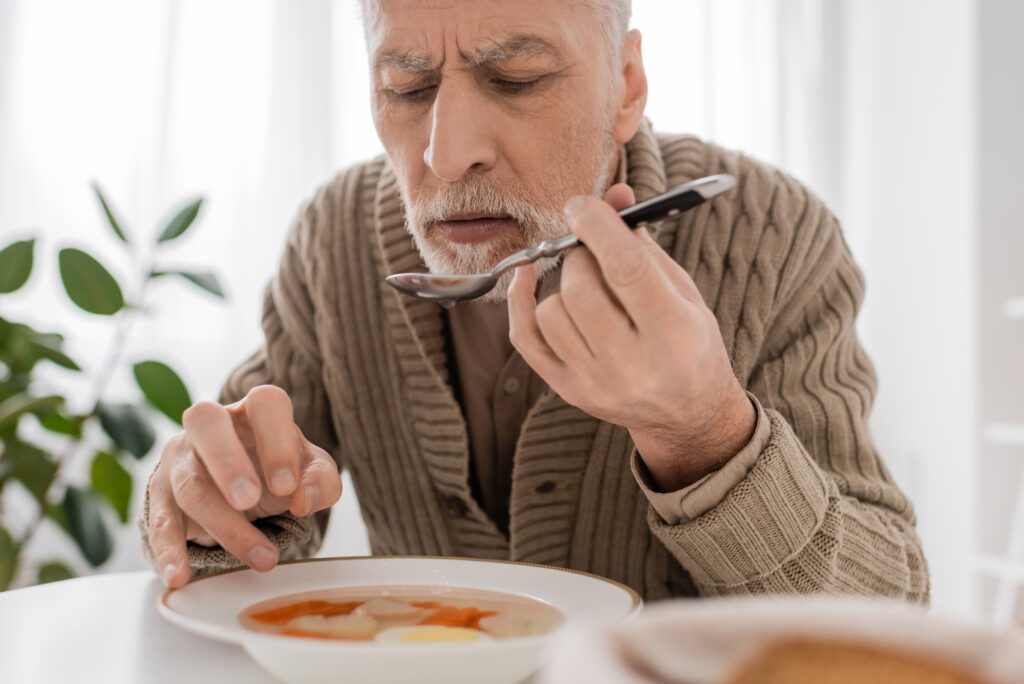Parkinson’s disease is the second most common neurodegenerative disease after Alzheimer’s, with more than 90,000 new cases diagnosed in the U.S. each year and more than 10 million total cases worldwide. Symptoms include the characteristic tremors and balance issues that typically lead to diagnosis, as well as non-motor symptoms, such as loss of smell, constipation, and REM sleep disturbances, which can develop up to 20 years before diagnosis in some people with the disease
The disease occurs when a protein called alpha-synuclein misfolds and clumps together. Those clumps then damage dopamine-producing nerve cells in the brain, which leads to the typical Parkinson’s symptoms. These protein clumps are believed to be formed in the gut wall at the very early stage of the disease, eventually reaching the brain by traveling up the vagus nerve. Gut bacteria can influence this process, and previous research has shown that Parkinson’s patients often have an altered gut microbiome compared to healthy individuals and they often show more intestinal inflammation.
These results led a team of Belgian researchers from Ghent University to investigate whether a fecal microbiota transplant (FMT) with healthy gut bacteria could have a significant impact on the progression of Parkinson’s disease. Their results were published in the journal eClinicalMedicine, part of The Lancet.
The single-center, randomized, double-blind, placebo-controlled phase 2 trial was performed at Ghent University Hospital between December 01, 2020, and December 12, 2022. The researchers recruited 46 early-stage Parkinson’s patients, who were randomly assigned to either a treatment group (22 patients) or a placebo group (24 patients). The study included a baseline visit, a colonoscopy before and 3 months after FMT, the FMT procedure itself, and study visits at 3, 6, and 12 months after FMT.
For the FMT procedure, the treatment group received stool from healthy donors via a nasojejunal tube, and the placebo group received their own stool. After one year, the results showed that patients in the treatment group showed significantly more improvement in motor symptoms than the placebo group. The improvement in motor symptoms became more pronounced between the sixth and twelfth month after the transplant, suggesting a potential long-lasting effect.
Additionally, participants in the treatment group had less constipation, another common symptom of Parkinson’s. The only adverse events reported were a few cases of temporary abdominal discomfort.
“Our results are really encouraging,” says Arnout Bruggeman, PhD, first author of the study. “After twelve months, participants who received the healthy donor stool transplant showed a significant improvement in their motor score, the most important measure for Parkinson’s symptoms.”
Conclusions
These findings open up potential new avenues for Parkinson’s treatment, an important development as current treatments consist mainly of medications that replace dopamine, which often have troublesome side effects and lose effectiveness over time.
“Our study provides promising hints that FMT can be a valuable new treatment for Parkinson’s disease,” says Roosmarijn Vandenbroucke, PhD. “More research is needed, but it offers a potentially safe, effective, and cost-effective way to improve symptoms and quality of life for millions of people with Parkinson’s disease worldwide.”
Next, the team is planning studies to determine precisely which strains of bacteria have a positive influence on Parkinson’s symptoms, with the ultimate goal of developing a “bacterial pill” or other targeted therapy for Parkinson’s treatment.






